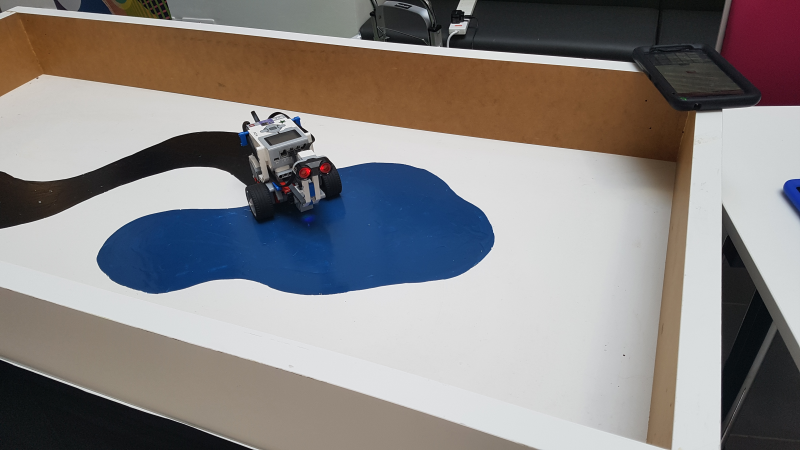Lego Rovers at the World Museum
or Night Day at the Museum
The Liverpool World Museum have been hosting a series of exhibitions and events about space, including the Astronomy Photographer of the Year exhibition (which is still running and I highly recommend). As part of this, we’ve again been running some Lego Rovers workshops, one on the 20th of July (the 50th anniversary of the Apollo 11 moon landing!) and one on the 10th of August (exactly 21 days after…er…the last Lego Rovers workshop).
For both the July and August events, we ran four workshops spread out across the day for up to ten family groups. Both days were busy and energetic, with a mixture of excited children and fascinated parents.
The August workshops were even more exciting (for me) because I was running them myself. Both workshops were also staffed by Jamie, an enthusiastic undergraduate student, and Patrick, who works at the World Museum. Louise is taking a well-deserved holiday, so I (excited and slightly nervous) was running the show.
Workshops
I’ve been involved in several Lego Rovers activities now. I’ve taken the drop-in stand at culture festival, taken the rovers into schools, and run group workshops like these at the World Museum.
The activity introduces children to the basics of autonomous robotics. Each group gets a Lego Rover:
 which has two sensors. First they control the robot remotely, using a tablet computer. Next we introduce the light and ultrasonic sensors, the latter of which gives me a great excuse to talk about bats and dolphins! Then the children learn about programming simple rules for the robot to (for example) avoid obstacles. For me, the best reaction is when one of the kids has programmed in a rule, drives the robot towards a wall, and is then surprised and delighted when the robot stops and turns away from the wall just like they programmed it to.
which has two sensors. First they control the robot remotely, using a tablet computer. Next we introduce the light and ultrasonic sensors, the latter of which gives me a great excuse to talk about bats and dolphins! Then the children learn about programming simple rules for the robot to (for example) avoid obstacles. For me, the best reaction is when one of the kids has programmed in a rule, drives the robot towards a wall, and is then surprised and delighted when the robot stops and turns away from the wall just like they programmed it to.
The activity combines information about robots, autonomous systems, and space exploration. This means that we get a wide range of questions, from both the children and the adults. We get to talk about the current stock of rovers, how they get to Mars or the Moon (depending on the rover), what sort of technology they have, and how they’re controlled. We get to talk about the huge distances being part of the reason for using autonomous technology in the rovers, and which planets might be explored next.
The museum was an interesting venue because of the wide range of people visiting that day. We had local families, people visiting from Scotland, the Isle of Wight, and Spain. The workshop in July even had some groups who were visiting from a school in China.
Outreach
Over both the workshops I was talking to Jamie about why he’d volunteered for these outreach activities. We got chatting about the benefits of the experience you gain while doing it, experience that is useful even if you’re not thinking of an academic career.
At its core, this is teaching experience. But breaking that down a little, that means you learn how to describe things so that it’s easy to understand for a general audience (particularly a target audience of the children in the room) and provide some structure to an activity to keep the children engaged while they learn. You also begin to learn how to spot the people who want a little help but don’t want to ask, or have a question but are worried about taking up too much of your time.
Another set of skills that this kind of outreach can teach is organising the event itself, both planning for it and the logistics on the day. This involves things like thinking about what you’ll need with you, talking to the organisation who is hosting your activity, and informing anyone you have helping you on the day.
On a more personal level, it can also help build confidence with speaking in public. I’m often still quite a nervous person, and this was worse early on in my PhD. By this point I know I’ve gotten a lot better at public speaking, so my nervousness isn’t as bad. Still, if I’ve not done something like this for a while, that nervous energy can creep back in. Going back into running this kind of activity is a nice reminder that I can do it and that things still run smoothly.